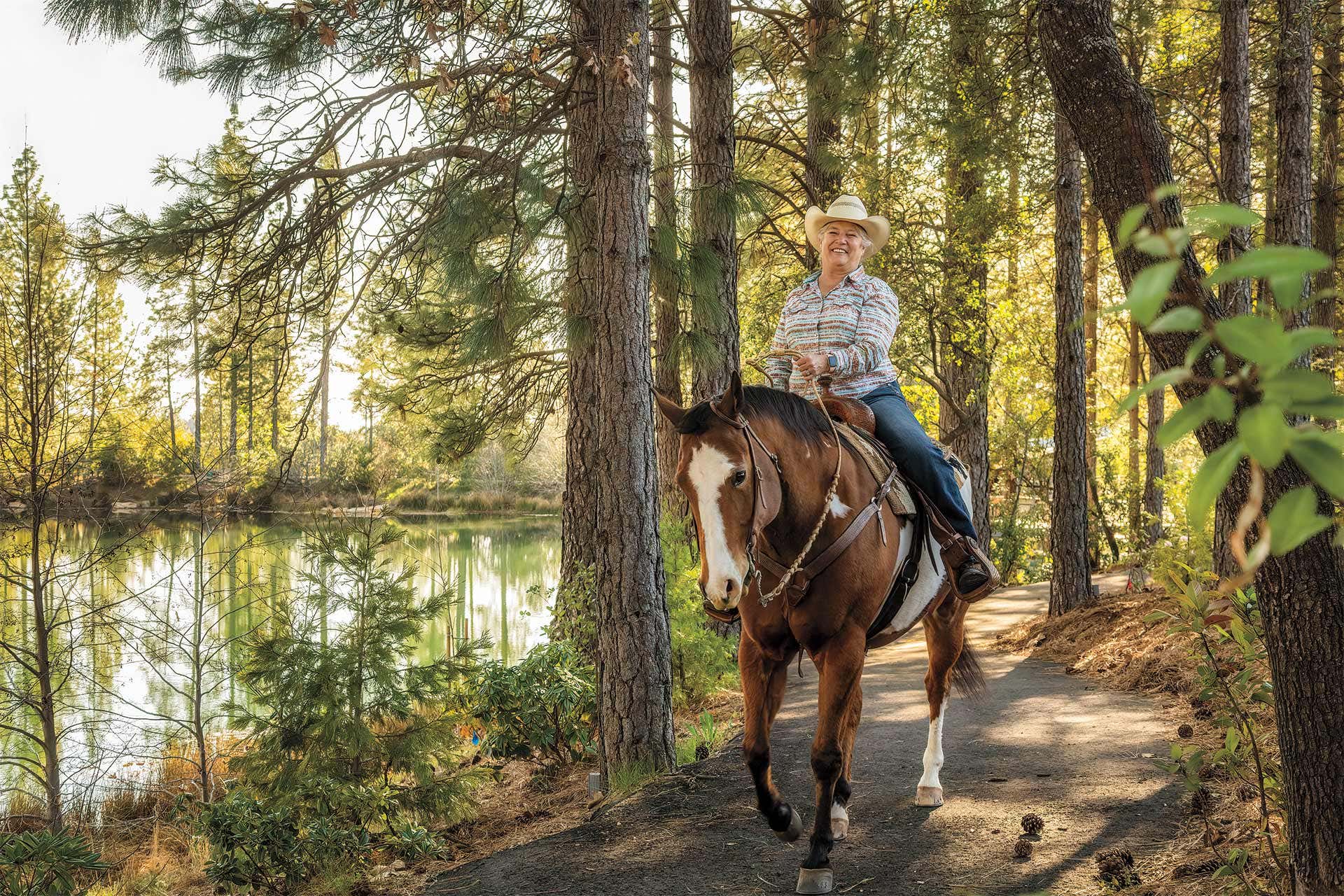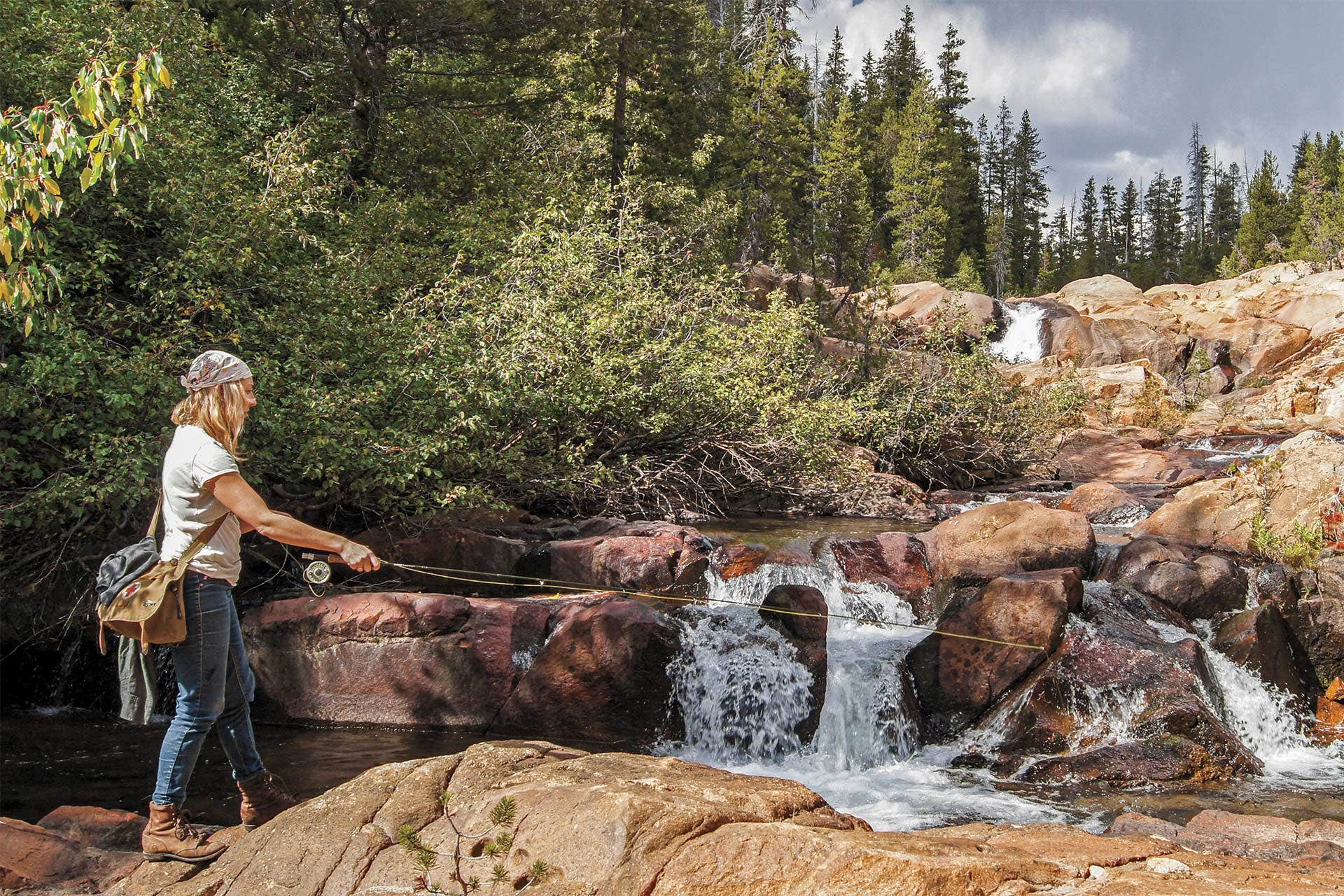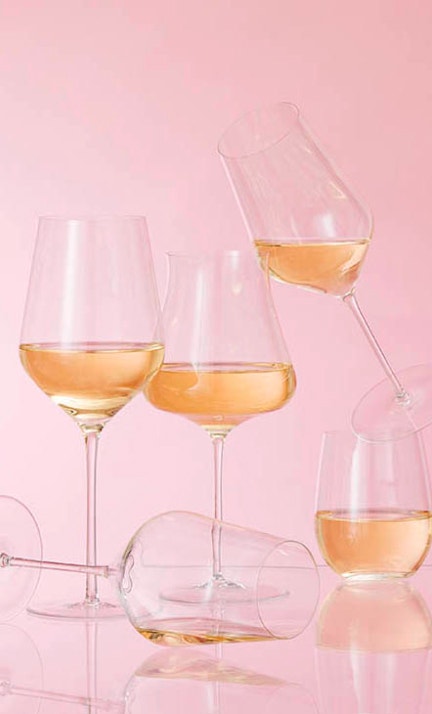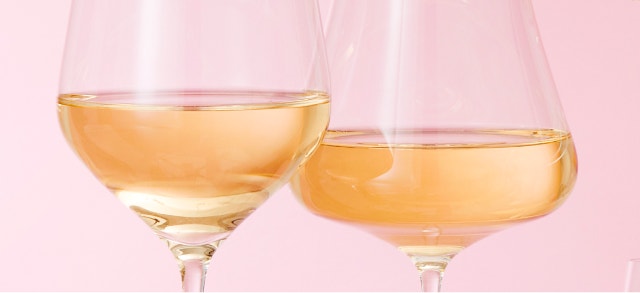Wine Enthusiast |
- Lush or Lean? Wine Pros on What their Favorite Tasting Terms Really Mean
- The Best Outdoor Adventure Spots in El Dorado, According to California Wine Pros
- AAPI-Owned Craft Distilleries Producing Whiskey, Soju and More
| Lush or Lean? Wine Pros on What their Favorite Tasting Terms Really Mean Posted: 07 Jun 2021 05:00 AM PDT  Fully masked and several feet from guests' tables, Gabriela Davogustto has never been so focused on quickly and clearly communicating a wine's character. "I'm six feet away yelling, 'Fresh berries,' and they're like, 'What??' " says Davogustto, wine director of Clay in New York City. "I try not to get into too much detail. You really have to figure out what people want to know." There's long been a linguistic dance between guests and wine professionals, with each doing their damndest to figure out exactly what the other is really saying. A big part of a sommelier's job is to ask the right questions, interpret a guest's wine knowledge and adapt language accordingly. Most of the time, that means skipping official Wine & Spirit Education Trust (WSET) tasting grid vocabulary in favor of more evocative phrasing. "Everyone’s wine language is different," says Tonya Pitts, wine director of San Francisco's One Market Restaurant. "When you come to the table, first you have to listen." But that exchange has gotten a bit more rushed and even "weird," according to Arthur Han, beverage manager at Momofuku Ko. Measures to curtail potential Covid-19 exposure have led Han's team to limit the amount of time tableside. Even before the pandemic, Han preferred to avoid "useless," subjective tasting notes. "My lemon might be your orange," he says. Like Davogustto, he prefers not to give guests too much information, lest certain words steer them from a wine they might love. Wine drinkers come with baggage, convinced they don't like certain varieties, regions, styles or producers. Many are too embarrassed to ask questions. Instead, they just nod and pretend to understand what terms like "grippy," "nervy" or "tension" mean. "I feel like wine is a misunderstood friend of mine that everyone knows," says Mara Rudzinski, partner at soon-to-open Contento in New York City. "But everyone is always skeptical of who's around them." In an effort to improve communication, 15 wine pros discuss their favorite wine words and what they really mean.  Balanced: Balanced wines are "like a hug," says Davogustto. The fruit, acidity and tannins are harmonious, and no one characteristic "jumps out first." That's opposed to linear or angular wines that attack the palate before their full character is revealed. Bright: Bright generally means "lively and higher in acid," says Rudzinski, which often translates to easy-drinking. Pitts thinks of bright wines like laser beams. "[They're] pure and focused," she says. "You can taste and visualize the wine. You know exactly what's happening on your palate." Pitts points to Dr. Konstantin Frank's Finger Lakes Grüner Veltliner as a good example of a bright wine. Bold: Bold wines are "fruit-forward with structure and backbone," says Brian Grandison, sommelier at The Surf Club in Miami. When Han thinks of bold wines, Barolo and Brunello come to mind, with their pronounced tannins and darker fruit. Han says "bold" can translate into higher alcohol content, but it doesn't necessarily mean heavy, a term he has stopped using. Rather than bold, Wanda Mann, founder of Wine With Wanda, prefers to describe these wines as "va va voom." Confident: RdV Vineyards winemaker Joshua Grainer says a confident wine is one "that shows great balance and poise, avoiding extremes of ripeness or manipulation and true to its origin and or variety." To achieve this, it means to increase vine age, better understanding of microclimates and precision in the cellar. In addition to RdV's 2016 Lost Mountain blend of Merlot, Cabernet Sauvignon and Cabernet Franc, Grainer also points to Opus One, particularly the 2014 bottling, as example of a confident wine. Creamy: Creamy wines are all about mouthfeel, says Han. They often have lower acid, some age and have spent time in wooden barrels and/or on the lees. He thinks of oak-forward wines from the southern Rhȏne, or aged Champagnes with a mouthful of soft bubbles. Nikki Goddard, an Oakland-based wine writer, uses dairy and creamy qualities to help wine lovers understand body. "Light-bodied wines feel like water in your mouth, medium-bodied wines feel like skim milk, full-bodied wines are like whole milk, or even cream, in the case of some dessert wines," she says. Elegant: When Pitts says that a wine is elegant, she means that the fruit tastes cared for, and she can tell a lot of thought went into its production. She finds certain aged, high-elevation wines taste elegant. Davogustto pictures "Grace Kelly in a glass." She points to the medium-light body, crisp acidity and soft tannins that you find in Joan D'Anguera's 2017 Altaroses Garnacha from Montsant. Frenetic: Jeff Segal, owner of Domestique wine shop in Washington, D.C., loves to talk about a wine's energy. He describes some of his favorite natural wines as frenetic. "They're unpredictable, uncontrolled, vibrant and exciting," says Segal. "When a wine is frenetic, it’s not a wine that you can pin down with a simple tasting note. It’s always shifting and forcing you to reconsider." Fun: If Davogustto senses that a guest is up for an adventure, she'll sell them a "fun" wine. This could mean something from the Canary Islands, a rosé from Virginia or another variety or region guests are less likely to have encountered elsewhere. These wines strike her as fun because "you don't know what you're going to get. They're easy to drink, but they also surprise you." Grippy: When a wine's tannins are "a little pronounced and almost too much," perhaps like a young Bordeaux, it's grippy, says Jeff Harding, wine director at New York City's Waverly Inn. "But just when you think it's too much and too distracting, you're like, 'No, it's just right.' "  Heady: Pitts uses heady instead of "aggressive" or "strong" to describe higher-alcohol wines. She also deploys the term figuratively to talk about cerebral wines in their tasting sweet spot, like a 2000 Château Margaux. Juicy: For Rudzinski, juicy wines, embodied by Beaujolais and its principal grape Gamay, are "bursting with fruit." This often means berries and red stone fruits that are "ripe in the summertime, freshly picked with juice running down your chin." Lean: Just talking about lean wines makes Rebekha Pineda, a sales associate at Domestique, stand a little straighter. "It’s a word that communicates an idea and feeling beyond the literal translation," she says. "Lean whites are steely, like marathon runners, or they're slightly on edge, like a broke college student trying to escape dinner barely spending anything." While a full-bodied wine tastes rich and lush, lean connotes tightness and focus. "As a minimalist, lean is the highest compliment reserved for old-vine, grey-slate Riesling, or the affordable Pépière Clos de Briords [Muscadet]," says Pineda. Lush: Lush wines have the body and concentrated flavor of a bold wine, but they are "velvety and silky smooth with less tannins," says Grandison. Nervy: Harding says that nervy bottles have what borders on too much acid, but they're "just right and keep grabbing your attention." Goddard prefers to call these high-acid wines, like dry German Riesling, Muscadet, Loire Valley Chenin Blanc and Chablis, "mouth-puckering," instead.  Porch pounder: Porch pounders are "easy and uncomplicated wines that you should chill and drink quickly," says Alexi Cashen, CEO of Elenteny Imports. Pitts refers to these bottles as "patio wine," or wines to drink around the pool. "They remind me of sunshine," she says. Many rosés fit the bill, as do pours of Pinot Grigio. Purity: Tim Elenty, owner of Elenty Imports, considers purity a measure of the style in which a wine is made. If a wine is focused and true to variety or regional style, it's a pure expression.  Punchy: Big, young reds that "punch you in the sides of your face" with tannins are what Jillian Stern, estate ambassador at Napa's White Rock Vineyards, considers punchy wines. Examples might include young Malbecs, Cabernets or Tannats. Rustic: Pitts says rustic wines are everyday drinking reds, best paired with a meal. Wines from Burgundy's Irancy appellation, along with certain Barberas, Syrahs and Grenache from the Côtes du Rhône, are examples. Harding says that rustic wines often have a lingering finish, pleasant but not zippy acidity and, occasionally, some barnyard aromas. Snappy: Han sells lots of chilled, snappy white wines, which means bottles like Chablis, dry Riesling and Albariño. Elenty also likes to use snappy for "crisp, clean, dry white wines." Smooth: Stern has dropped smooth from her wine vocabulary. "It's my pet peeve," she says. "All wines should be smooth. That descriptor belongs with hard liquor, not wine." Still, smooth resonates with guests who want a "light- to medium-bodied red with velvety tannins," says Iris Fabre, assistant manager at London's Real Drinks and founder of Wine Minute. Rudzinski points to a French idiom taught to her by the late Jean-Luc Le Dû to describe a good, smooth wine: "le petit Jesus en culotte de velours" (or "baby Jesus in velvet underpants"). Tension: For Grainer, wines with tension display an elegant, ageworthy structure, "achieved when craftsmanship marries seamlessly with the pedigree of the terroir, or the wine's unique sense of place." For Harding, tension lies at the intersection of grippy and nervy, exemplified by wines like Sylvain Pataille's Fleur de Pinot Marsannay Rosé from Burgundy. "It's vibrating with energy, whether from acid or texture or fruitiness and weight, and it's a constant dance of components all perfectly strung together, all competing for your attention," he says. "It's like when a dancer leaps impossibly high, and you think that they're gonna fall, but they land and continue on their way. You just can't take your eyes off." |
| The Best Outdoor Adventure Spots in El Dorado, According to California Wine Pros Posted: 07 Jun 2021 04:30 AM PDT  The granite peaks, volcanic slopes and snowmelt streams of California's Sierra Nevada mountains have created high-quality conditions for grape growing throughout El Dorado County. These rugged features, some up to 10,000 feet above sea level, are doubly valued by local vintners who also enjoy a bit of adventure and dabble in recreational activities that range from kayaking and fly fishing to biking and horseback riding. Here are the sports they love most, and the spots they visit to test themselves against the terrain.  Horseback RidingPeggy BeckerTasting Room Associate, Starfield VineyardsFor Becker and her big bay-and-white-paint gelding, Littleman, the era when horses were essential to frontier living in Gold Country is still very much alive. "There are so many different trails—old railroad grades, the Pacific Crest Trail and Indian Diggings—that it's easy to explore on horseback," she says. While horse rentals are rare, the region boasts campgrounds specifically laid out for those who own their own steed, like Jenkinson Lake in Sly Park Recreation Area near Pollock Pines.  CyclingMica RaasPartner/Director of Winemaking, Myka CellarsA former competitive cyclist, Raas jumps on his mountain bike three or four times a week. He can hit the snowline after just a 15-minute climb from his house, where he says that he can feel some of the same climatic sensations as his grapes, like downdrafts from the river and extreme nighttime cooling. Sly Park Recreation Area, off U.S. Highway 50 near the town of Pollock Pines, is a prime destination for endurance cycling. However, for cycle-cross bikes, he says that Cronan Ranch Regional Trails Park along CA Highway 49 is the best bet.  Fly FishingLexi BoegerFamily Owner, Boeger Winery; Creator, Lexi Wines"We've got great trout streams anywhere in the high Sierra, and especially in El Dorado County," says Boeger, taught to fly fish as a girl by her father, Boeger Winery Founder Greg Boeger. Eventually, she started Fly Girls, a fly-fishing school for girls and women. She recommends beginners try the American River along U.S. Highway 50 between Fresh Pond and Horsetail Falls. More adventurous anglers, she says, can pack a lunch, use a map to pinpoint a tributary of one of the main rivers and hike in. Pro tip: Boeger's favorite dry fly is a Royal Wolff.  BackpackingCarrie BendickOwner/Cowinemaker, Holly's Hill VineyardsBendick tried to take her family car-camping years ago, but compared to their secluded home on the vineyard property, it didn't provide much solitude. It wasn't long before hiking became their preferred escape. She recommends the Twin Lakes area west of Lake Tahoe. You can access the trailhead from the town of Kyburz on U.S. Highway 50, via Wrights Lake Road. The Rockbound Trailhead is also nearby. Often closed through mid-June due to snow, it's a more challenging climb. But it also boasts a more spectacular view from the top.  KayakingEmmett JonesVineyard Manager, Lava Cap WineryAfter a day of picking grapes in the late summer heat, Jones' favorite cool-off move is to plunk his kayak into the South Fork of the American River at Camp Lotus and ride on the Barking Dog rapid. This locally famous standing wave allows skilled kayakers to surf in place in the middle of the roiling river. While the waterway is famous for its guided whitewater rafting excursions, kayaking on your own "can be dangerous if you don't know the safety behind it," says Jones. If you are familiar with all the precautions, a morning ride down the Chili Bar run on the South Fork can get the adrenaline pumping before an afternoon of wine tasting, he says. |
| AAPI-Owned Craft Distilleries Producing Whiskey, Soju and More Posted: 07 Jun 2021 04:00 AM PDT  From whiskey to rum, this shortlist spotlights a variety of options from Asian American and Pacific Islander (AAPI)-owned distillers. To share additional assets to include in this list, please email editor@wineenthusiast.net. 10th Street Distillery Located in San Jose, California, the distillery was cofounded by former engineers Virag Saksena and Vishal Gauri, who now build terroir-minded American malt whiskeys. Its limited-edition peated whiskey finished in a Sonoma Port wine cask channels the flavor of dried cherries toasted over a campfire, while permanent offerings like the Distiller's Cut is aged in Bourbon barrels. Kasama Rum Inspired by her maternal family roots, Alexandra Dorda sources this mellow, coconut-tinged rum in the Philippines. Though the brand launched in February, Dorda knows a thing or two about spirits—she's the daughter of Tad Dorda, cofounder of Chopin and Belvedere vodka. Kikori Whiskey In 2015, Ann Soh Woods launched Kikori, a rice-based whiskey. Two years later, she added yuzu liqueur Yuzuri, also made with a base distilled from Japanese rice. While Soh Woods is based in Los Angeles, both spirits are made in Japan. Latitude Beverage Co. This independent Boston-based wine and spirits company was founded in 2007 by Kevin Mehra. Its brands include Steel Dust Vodka, Wheel Horse Whiskey and Tequila Zarpado. MÔTÔ Spirits Located in Brooklyn, New York's Bushwick neighborhood, this lively craft distillery is co-owned by Marie Estrada, originally from the Philippines, and Israel-born Hagai Yardeny. The distillery makes rice whiskey, inspired by a motorcycle trip that Yardeny took to Vietnam, and jabuka, an apple-based spirit with Croatian roots. Skrewball Peanut Butter Whiskey Steve Yeng, a Cambodian refugee and former restaurateur based in San Diego, developed a popular whiskey-based peanut butter cocktail to serve at The Holding Company and OB Noodle House. In 2018, his wife and business partner, Brittany Merrill Yeng, leveraged the recipe to create this flavored whiskey brand. Vinn Distillery Based in Portland, Oregon, Vinn makes rice-based baijiu, whiskey and vodka, among other products. It's owned and operated by the Ly family, which includes five siblings, originally from China. All five share the same middle name, Vinn. West 32 Soju Daniel Lee introduced the Korean spirit soju to Max Fine while both were in college in the early 2000s. A decade or so after graduation, they created a domestic version distilled from corn sourced from New York and Connecticut. It's named for the epicenter of New York City's Koreatown neighborhood. Yobo Soju In 2015, Korean-American lawyer and mother of twins Carolyn Kim created this brand with the support of her husband, James Kumm. The soju is made in New York from Finger Lakes Catawba grapes. |
| You are subscribed to email updates from Wine Enthusiast. To stop receiving these emails, you may unsubscribe now. | Email delivery powered by Google |
| Google, 1600 Amphitheatre Parkway, Mountain View, CA 94043, United States | |

















0 comments:
Post a Comment